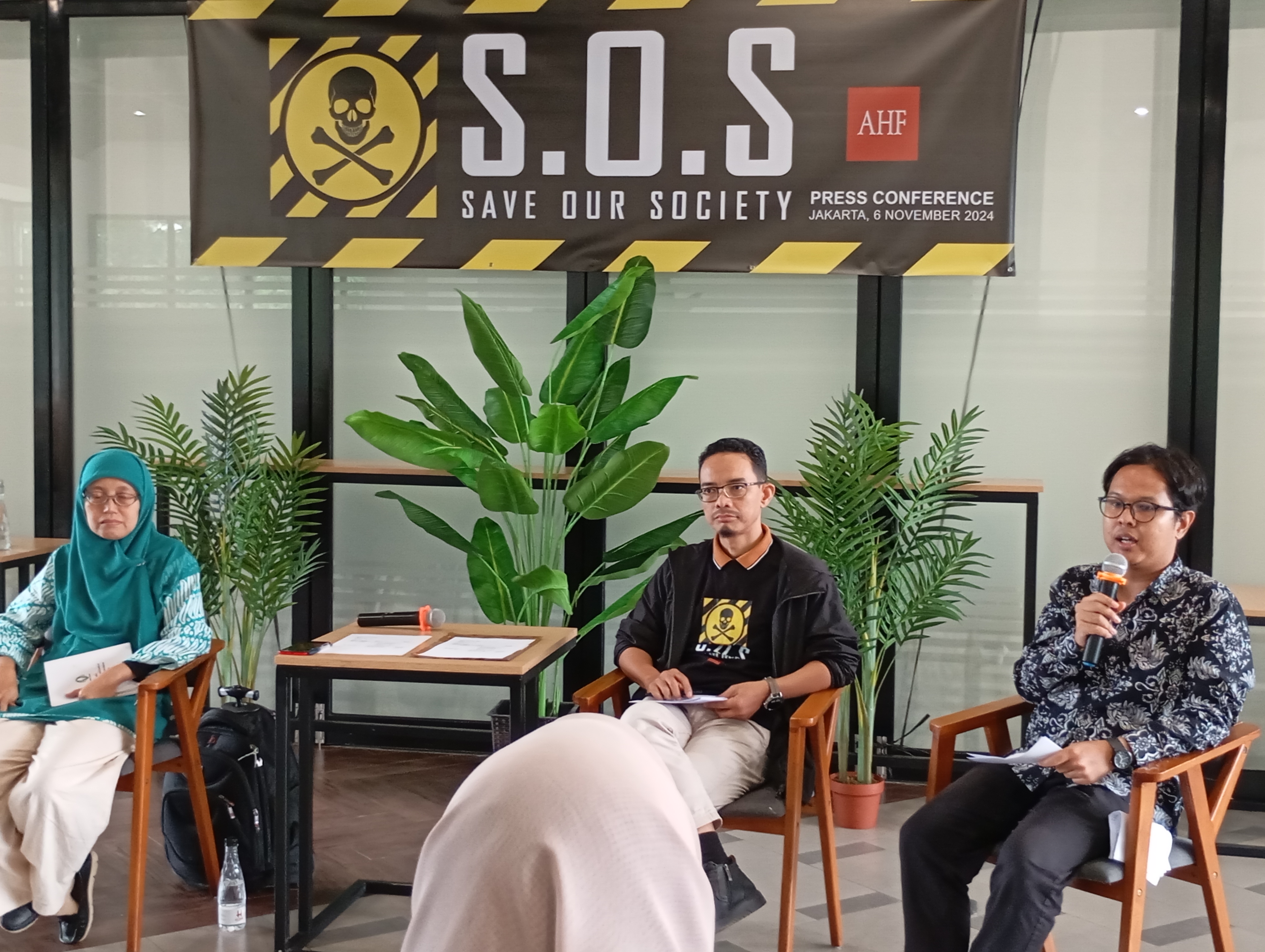REPUBLIKA.CO.ID, JAKARTA — A Save Our Society (SOS) campaign by AIDS Healthcare Foundation (AHF) Indonesia was held in Jakarta on Wednesday (7/11/2024). The purpose of this activity is to promote equality and fairness in obtaining interregional health services.
The experience of facing the Covid-19 pandemic led to the evaluation that the services of obtaining vaccines can only be obtained, even monopolized by the state of the vaccine manufacturer. Other countries that can't produce vaccines will have to wait and try harder to get those services.
AHF considers this to be a serious topic of discussion at WHO. It is also one of the reasons for drafting a pandemic management agreement or also called WHO Pandemic Agreement.
The organization explained that the Covid-19 pandemic exposed critical gaps in access to health services, especially in low- and middle-income countries. Access to vaccines and life-saving supplies lags behind when compared to rich or developed countries. By advancing decentralized production and implementing technology sharing, Asia can lead efforts toward a fairer and better-prepared global health framework.
“Through a united commitment to equitable equality, we can create a Pandemic Agreement that not only serves Asia but also builds resilience for all, ensuring no region is left vulnerable in future crises,” said Asep Eka Nurhidayat, Country Program Manager AHF Indonesia.
The SOS campaign urges that the new pandemic agreement includes:
Regional Production Capacity
Concrete mechanisms to facilitate the production of local vaccines, diagnostics, and therapeutics in the global south. This requires a roadmap that binds the transfer of knowledge, technology, and long-term sustainable financing, as outlined in Articles 9, 10, and 11 of the draft pandemic agreement.
Transfer of Technology
Imposable provisions to ensure that technology transfers are not limited to voluntary and mutually agreed terms, but give low- and middle-income countries (LMICs) the same flexibility as rich countries such as the United States, which can use non-voluntary means and additional measures to address public health emergencies and other crises.
Sustainable Financing
The agreement should guarantee long-term financial commitments that bind high-income countries to support pandemic preparedness and response for LMIC countries. Voluntary contributions alone will not be sufficient, as outlined in Article 20. Civil Society Participation The effectiveness of global health governance now recognizes the important role of civil society and other non-state actors in the decision-making process.
Adopting governance models that incorporate participation are essential and enhance legitimacy, strengthen accountability, and transform the global health security architecture into a more equitable and effective system to better prevent, prepare for, and respond to global health threats.
As pandemic agreement negotiations reach a critical juncture, AHF once again appeals to Asian countries to support agreements that mean a lot and can force the promotion of public health equality and build a ready and resilient future.
Lutfiyah Hanim, researcher at Indonesia for Global Justice (IGC) explained that a number of countries in Africa are currently affected by the monkeypox pandemic. As of October 19, 2024, the number of deaths from monkey pox (Monkey Pox/Mpox) in Africa reached 1,100. Meanwhile, the number of cases reported in Africa this year has reached more than 42,000 cases.
Meanwhile, the manufacturer of the monkey pox vaccine based on its record there is only one in a Nordic country. The African region now affected by the outbreak did not obtain a license for the production of the disease vaccine. They also have trouble reaching for antibodies in order to avoid monkey pox.
“That's why this agreement on dealing with the pandemic must truly realize equality and fairness of access to health services in all countries,” Lutfiyah said.
Pandemic agreement
The World Health Organization (WHO) is negotiating a pandemic agreement to improve the world's ability to prevent, prepare for, and respond to future pandemics.
The agreement aims to strengthen international efforts to prevent and respond to pandemics, and to reduce the health, social, and economic consequences of future pandemics.
The agreement is being negotiated by the delegations of the 194 WHO member countries, civil society, international organizations, and relevant United Nations agencies.
The agreement aims to:
1. Ensure sustained political commitment
2. Define clear processes and tasks
3. Ensure long-term public- and private-sector support
4. Promote an "all-of-government" and "all-of-society" approach
5. Ensure equity in access to tools needed to prevent pandemics, including vaccines, personal protective equipment, information, and expertise
6. Ensure equity in access to health care for all people


